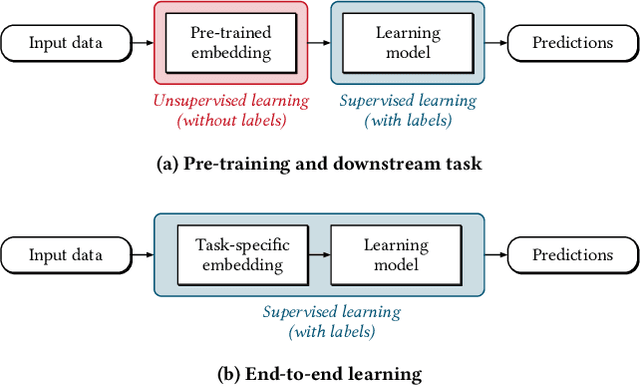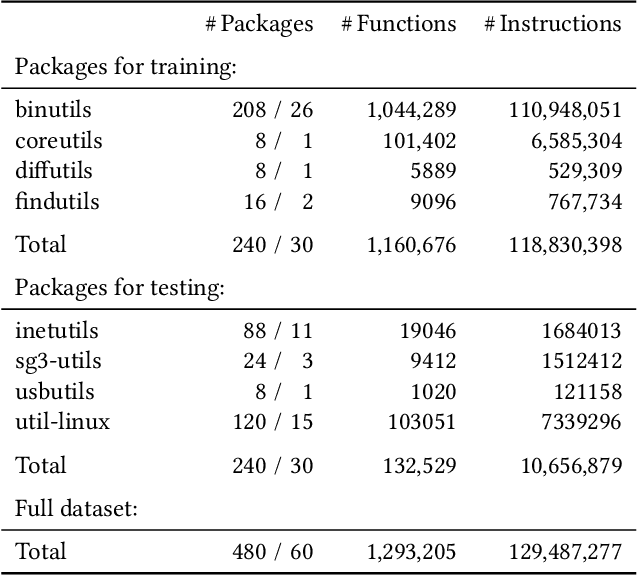Alwin Maier
On the Role of Pre-trained Embeddings in Binary Code Analysis
Feb 12, 2025



Abstract:Deep learning has enabled remarkable progress in binary code analysis. In particular, pre-trained embeddings of assembly code have become a gold standard for solving analysis tasks, such as measuring code similarity or recognizing functions. These embeddings are capable of learning a vector representation from unlabeled code. In contrast to natural language processing, however, label information is not scarce for many tasks in binary code analysis. For example, labeled training data for function boundaries, optimization levels, and argument types can be easily derived from debug information provided by a compiler. Consequently, the main motivation of embeddings does not transfer directly to binary code analysis. In this paper, we explore the role of pre-trained embeddings from a critical perspective. To this end, we systematically evaluate recent embeddings for assembly code on five downstream tasks using a corpus of 1.2 million functions from the Debian distribution. We observe that several embeddings perform similarly when sufficient labeled data is available, and that differences reported in prior work are hardly noticeable. Surprisingly, we find that end-to-end learning without pre-training performs best on average, which calls into question the need for specialized embeddings. By varying the amount of labeled data, we eventually derive guidelines for when embeddings offer advantages and when end-to-end learning is preferable for binary code analysis.
Misleading Authorship Attribution of Source Code using Adversarial Learning
May 31, 2019



Abstract:In this paper, we present a novel attack against authorship attribution of source code. We exploit that recent attribution methods rest on machine learning and thus can be deceived by adversarial examples of source code. Our attack performs a series of semantics-preserving code transformations that mislead learning-based attribution but appear plausible to a developer. The attack is guided by Monte-Carlo tree search that enables us to operate in the discrete domain of source code. In an empirical evaluation with source code from 204 programmers, we demonstrate that our attack has a substantial effect on two recent attribution methods, whose accuracy drops from over 88% to 1% under attack. Furthermore, we show that our attack can imitate the coding style of developers with high accuracy and thereby induce false attributions. We conclude that current approaches for authorship attribution are inappropriate for practical application and there is a need for resilient analysis techniques.
 Add to Chrome
Add to Chrome Add to Firefox
Add to Firefox Add to Edge
Add to Edge